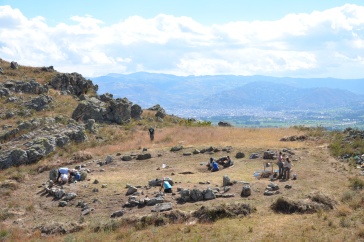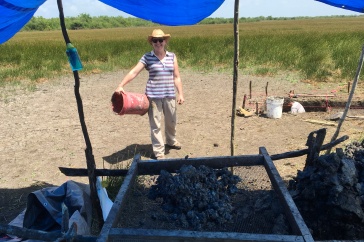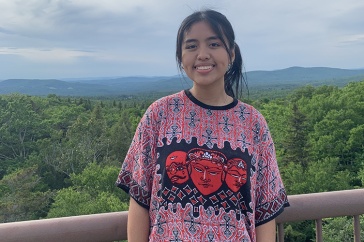In the hour before professor David Kaye, chair of the theatre and dance department, would take the stage and perform his one-man play “How I Brought Peace to the Middle East?” at New York’s United Solo theatre festival, details were beginning to become clear about the fatal terrorist attacks in Paris on Friday, Nov. 13.
As he prepared to begin his show based on his experiences in 2011 when, on a Fulbright award, he spent six months living just 20 miles from the Gaza Strip with his wife and daughters, Kaye had heard only the most basic facts about what had happened.
“I thought for a moment, should I say something about this?” he recalls, but decided he did not have enough details at that time to make a comment. “Had I known more about what happened, I think I would have said something after the play. My play is about not losing hope. I think the one thing that can’t be a victim of this is our hope that we can overcome.”

It seems especially poignant that Kaye was performing his show about peace in the midst of the attacks, but, he says, the reality is, “I don’t think there’s ever a time when it’s not timely — and that’s an unfortunate statement.”
Did hearing the news from Paris impact Kaye’s view of his responsibility as an actor? As he explains it: “As theatre artists, our job is to tell stories,” and specifically “stories that ask us to reflect deeply upon ourselves, our communities and our world. When theatre can do that, that’s theatre at its best.”
That is theatre’s role in an age of terrorism.
“It’s the art of humanity,” Kaye says. “It’s at these times when we have to keep reminding each other of our humanity. The world is a complex place. I think theatre has the capability to challenge or explain ways of seeing the world and really ask those serious questions.”
Theatre, he says, “is really good at providing a safe place to tackle unsafe subjects.”
-
Written By:
Jennifer Saunders | Communications and Public Affairs | jennifer.saunders@unh.edu | 603-862-3585



















































